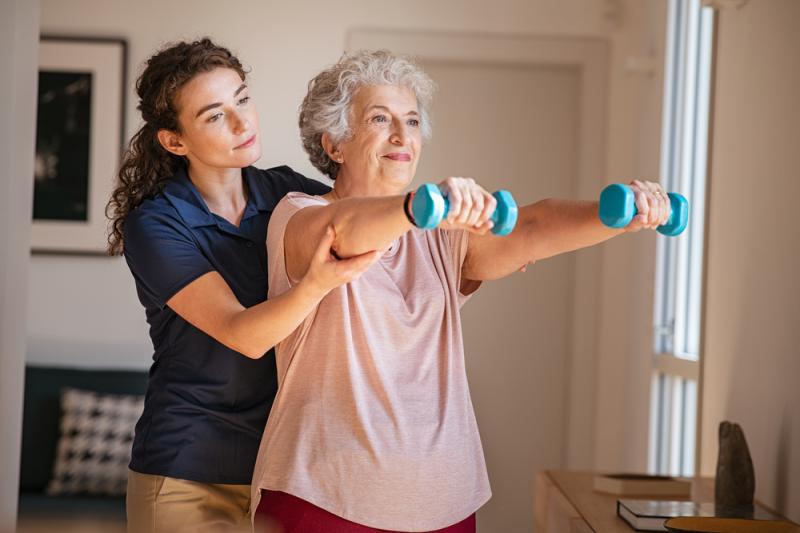6 Ways To Manage Mobility Issues In Older Adults

Body mobility is crucial to your quality of life. Being free to move and do mild to intensive physical activities allows you to stay active and productive. However, your body changes as you grow older, affecting your movements. Muscles, bones, and joints may weaken, limiting things you can do.
While aging is inevitable, there are many ways you can maintain your lifestyle despite limited mobility. For some older adults, reaching their retirement years has given them more freedom to do what they love, so it's essential to keep moving. As such, here are six ways to manage mobility issues to continue enjoying your adult life.
1. Seek Medical Help
Underlying health problems like chronic illnesses and injuries are common causes of mobility issues. The first step to managing it and getting the proper care is to seek medical help. Going to a specialist helps you get efficient treatment so you can continue living your best life.
One of the most helpful treatments for mobility issues is physiotherapy. This treatment may relieve chronic pain due to diseases and accident-induced injuries through massages, exercises, and heat or cold therapy. It may also help quicken the recovery of patients who have undergone surgeries.
While physiotherapy may be expensive, especially for conditions requiring long-term treatment, getting your mobility back will be worth every penny. You may click here for details on costs of physiotherapy.
2. Stay Physically Active
Staying physically active in your senior years can help improve your mobility. Adding mild physical activities to your daily routine may also help manage pain that limits your movements. However, it's still best to talk to your doctor about which exercises are appropriate for your condition for safety.
There's a wide range of senior-friendly exercises to improve mobility, like sitting yoga, water aerobics, and simple walking. These activities may help you regain strength and flexibility when done regularly with expert guidance to avoid accidents.
Aside from strengthening your body, staying active helps your overall mental and emotional health as it is known to release feel-good hormones. Also, some exercises are usually done in groups, which encourages socialization. This way, you're improving your mobility while enjoying healthy activities with friends.

3. Maintain A Healthy Weight
Maintaining a healthy weight is crucial to staying healthy since many chronic diseases are related to being overweight or underweight. Your weight also significantly affects your mobility, especially as you grow older. Gaining so much weight can put pressure on your bones and joints, which may cause pain.
Watching your diet is one way to maintain a healthy weight as an older adult. Eating balanced, nutritious meals is essential for your overall wellness since it may impact your body and mind. It's best to ask a dietician to create proper meal plans to improve your condition.
Another tip for maintaining weight is doing light exercises to burn calories. However, one must avoid over-exercising since it may lead to serious health problems. Generally, doing everything in moderation is the best way to improve your mobility.
4. Use Mobility Tools
Some older adults with mobility issues need tools and equipment to stay active. Walking sticks, canes, crutches, and wheelchairs are excellent equipment for mobility, especially for those with severe physical conditions.
Forcing independent movement without any tools can be risky for seniors. Since their bones may be weaker, there's a greater risk of injuries from slipping and falling. Therefore, using the right tools is crucial. Seniors may also ask for assistance whenever they're going out to stay safe.
5. Improve Home Safety
Some older adults prefer to retire at home to continue independent living and maintain their lifestyle. However, preparing your house for retirement requires improving safety and adding mobility assistance features.
To make your home elder-friendly, you may install handrails in areas like the bedside and bathroom. They provide extra support for standing up and sitting down. It also helps prevent accidents.
Aside from installing handrails, it's also best to re-organize your home. You may change the layout to clear obstructions for efficient and safe movement. You may also replace your furniture with more comfortable and convenient pieces like higher couches and adjustable beds to make getting up easier.
6. Consider Home Care Assistance
While independent living works perfectly for some older adults, home care assistance is always an excellent option. A professional care assistant can help you stay productive even with limited mobility.
Considering home care assistance is best for elders struggling with mobility issues. It's better to have someone help you with house chores and run some errands while you rest and regain strength. A professional caregiver is also equipped with skills to assist you with daily mobility exercises.
For those who need immediate assistance 24/7, staying in a care home offering physiotherapy and other medical services is also a great option. Assisted living facilities for the elderly also offer programs and exercises to increase mobility.
Conclusion
Managing mobility issues as you grow older can be challenging. However, you can stay productive, active, and happy with the proper physical treatment, diet, exercise, and personalized care.
More to Read:
Previous Posts:











